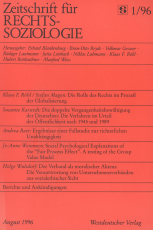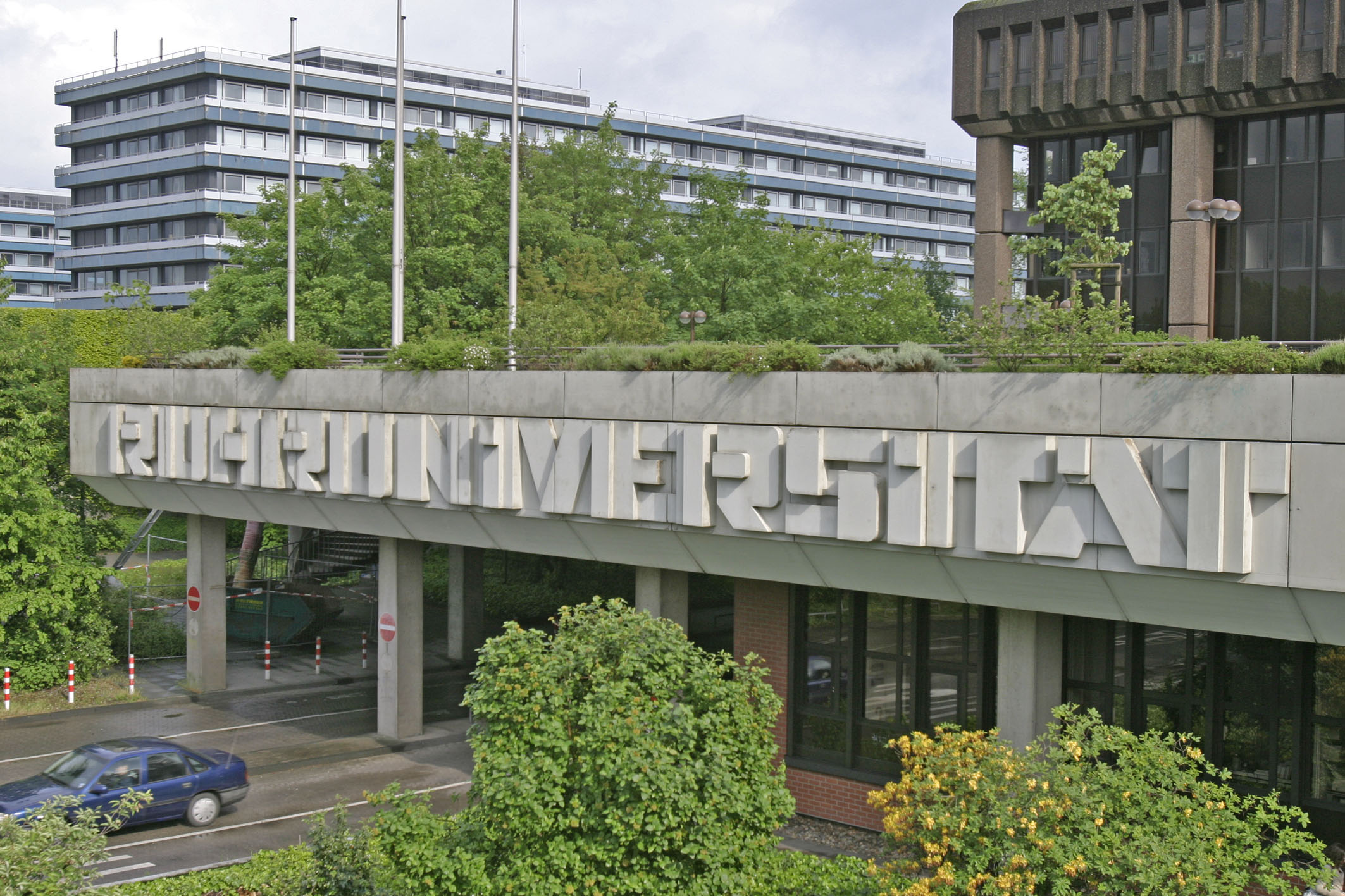Research
Cooperation
DFG-CAPES "Experimental Legal Philosophy"
We're happy to announce that Prof. Stefan Magen (RUB), Prof. Noel Struchiner (PUC Rio),
Dr. Ivar Hannikainen (UGR), Prof. Fabio Leite (PUC Rio), and Dr. Karolina Prochownik (RUB) have been awarded a three-year (2020-2023)
joint award from the Brazilian Federal Agency for the Advancement of Higher Education Personnel (CAPES) and the
German Research Foundation (DFG) to carry out collaborative research in experimental jurisprudence.
The project is titled "Experimental Legal Philosophy: The Concept of Law Revisited" and will kick off this summer.
It aims to apply the experimental tools developed in the psychological sciences to probe the cognitive underpinnings of legal intuition,
addressing core questions in the philosophy of law." As part of the project, we will also organize a series of workshops in Brazil and
Germany to bring together researchers in experimental jurisprudence.
Project description see here: info
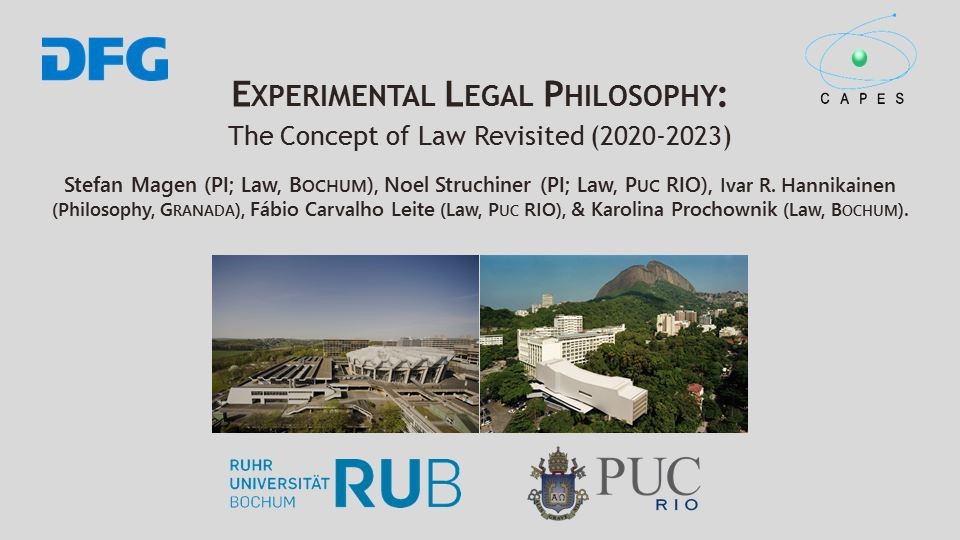
Cooperation
Center for Mind & Cognition
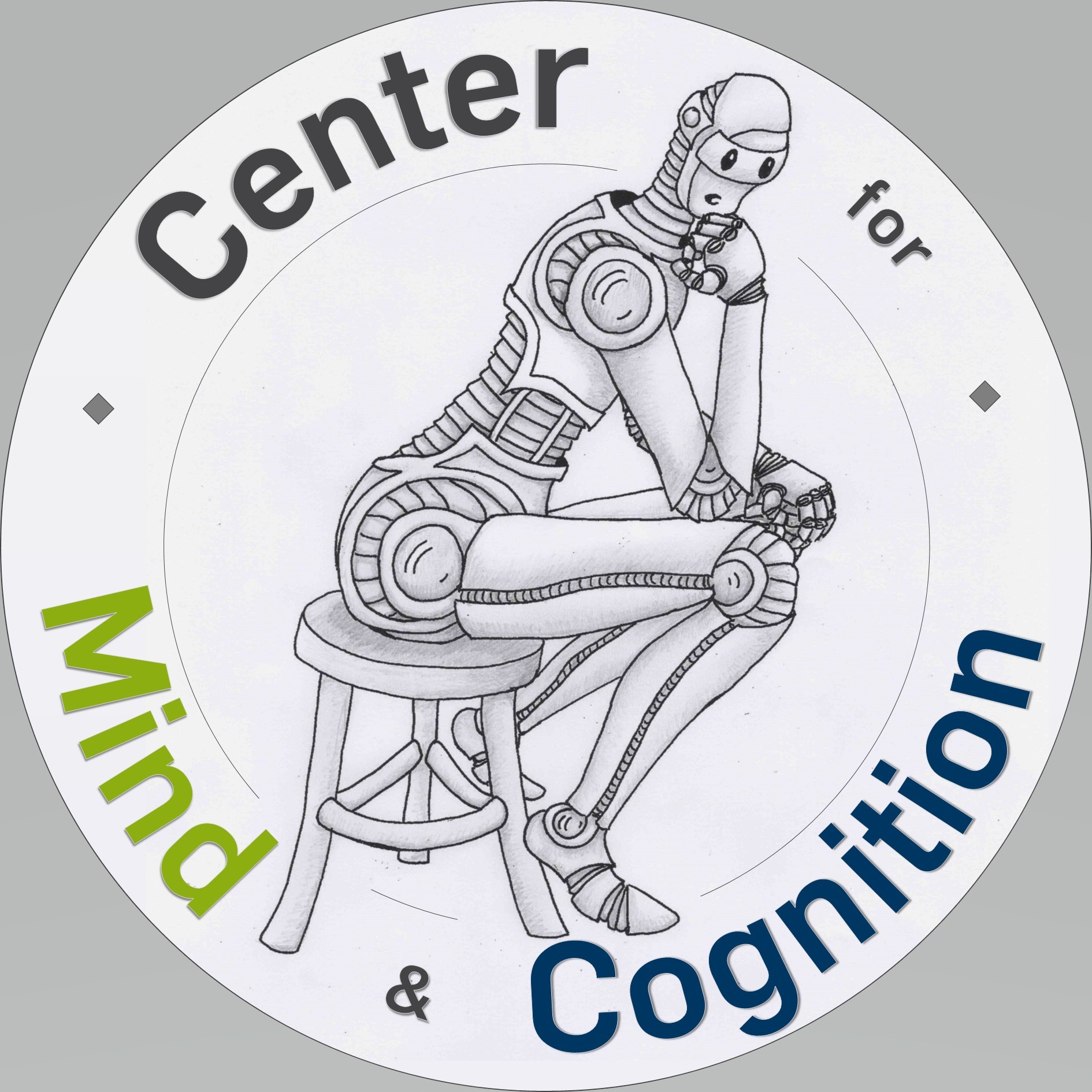
The Center for Mind & Cognition welcomes Prof. Dr. Stefan Magen as Principal Investigator.
Homepage
Visiting Scholar
Prof. Dr. Stefan Magen
Ruhr Universität Bochum

During the summer term 2018 Prof. Dr. Stefan Magen is a visiting scholar at the Max-Planck-Institut zur Erforschung von Gemeinschaftsgütern Bonn.
Institute foundation
CLBC
Center for Law, Behavior, and Cognition

About CLBC
The Center for Law, Behavior, and Cognition (CLBC) is an interdisciplinary research institute located at the Faculty of Law, Ruhr University Bochum. Our research is dedicated to naturalistic and experimental approaches in the philosophy of law, and their intersection with other disciplines like moral psychology and economic analysis of law. CLBC is headed by Prof. Dr. Stefan Magen, while Dr. Karolina Prochownik is a Senior Researcher, and Annabelle Bösing is a Research Assistant at the institute. CLBC cooperates with the Center for Mind, Brain, and Cognitive Evolution at Ruhr-University, with the Experimental Philosophy Group Germany, and with the Max-Planck-Institute for Research for Collective Goods.
Homepage
Contribution
Kontexte der Demokratie: Parteien - Medien - Sozialstrukturen
in: VVDStRL 77, 2018
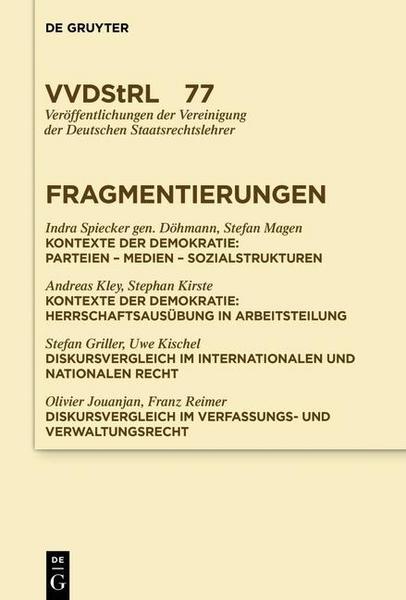
Infolge von Fragmentierungsprozessen ist der demokratische Diskurs zu einem Ort geworden, an dem gesellschaftliche Gruppen öffentlich und systematisch herabgewürdigt werden. Um den daraus resultierenden destruktiven Konfliktdynamiken entgegenwirken zu können, spricht sich der Beitrag für einen in Art. 2 Abs. 1 i.V.m. Art. 1 Abs. 1 und 3 GG zu verankernden gruppenbezogenen Herab- würdigungsschutz aus.
Contribution
Zwischen Reformzwang und Marktskepsis: Die Verwaltungsrechtswissenschaften in der Berliner Republik
in: Rechtswissenschaft in der Berliner Republik. hrsg. v. THOMAS DOVE u. STEFAN RUPPERT , 2018, S. 270-296
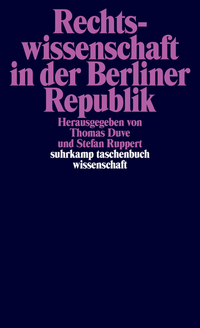
Wie hat sich die Rechtswissenschaft in Deutschland seit der Wiedervereinigung verändert? Wie unterscheidet sich die Berliner von der Bonner Republik? Ist es überhaupt sinnvoll, von einer Rechtswissenschaft der »Berliner Republik« zu sprechen und was wären ihre wichtigsten Charakteristika? Der Band, der explizit an das 1994 erschienene Rechtswissenschaft in der Bonner Republik (stw 1150) anschließt, versammelt Texte ausgewiesener Experten, die diesen Fragen nachgehen. Und er bilanziert die wichtigsten Entwicklungen in den juristischen Teildisziplinen während der letzten knapp 30 Jahre, vom öffentlichen Recht über das Strafrecht bis zum Zivilrecht und den Grundlagenfächern
Contribution (Dr. Rike Krämer-Hoppe)
International Adjudication as a Mode of EU External Governance? The WTO Seal Case
in: Journal of Common Market Studies. ed. by Michelle Cini and Amy Verdun, Vol. 55, No. 3, p. 535-550
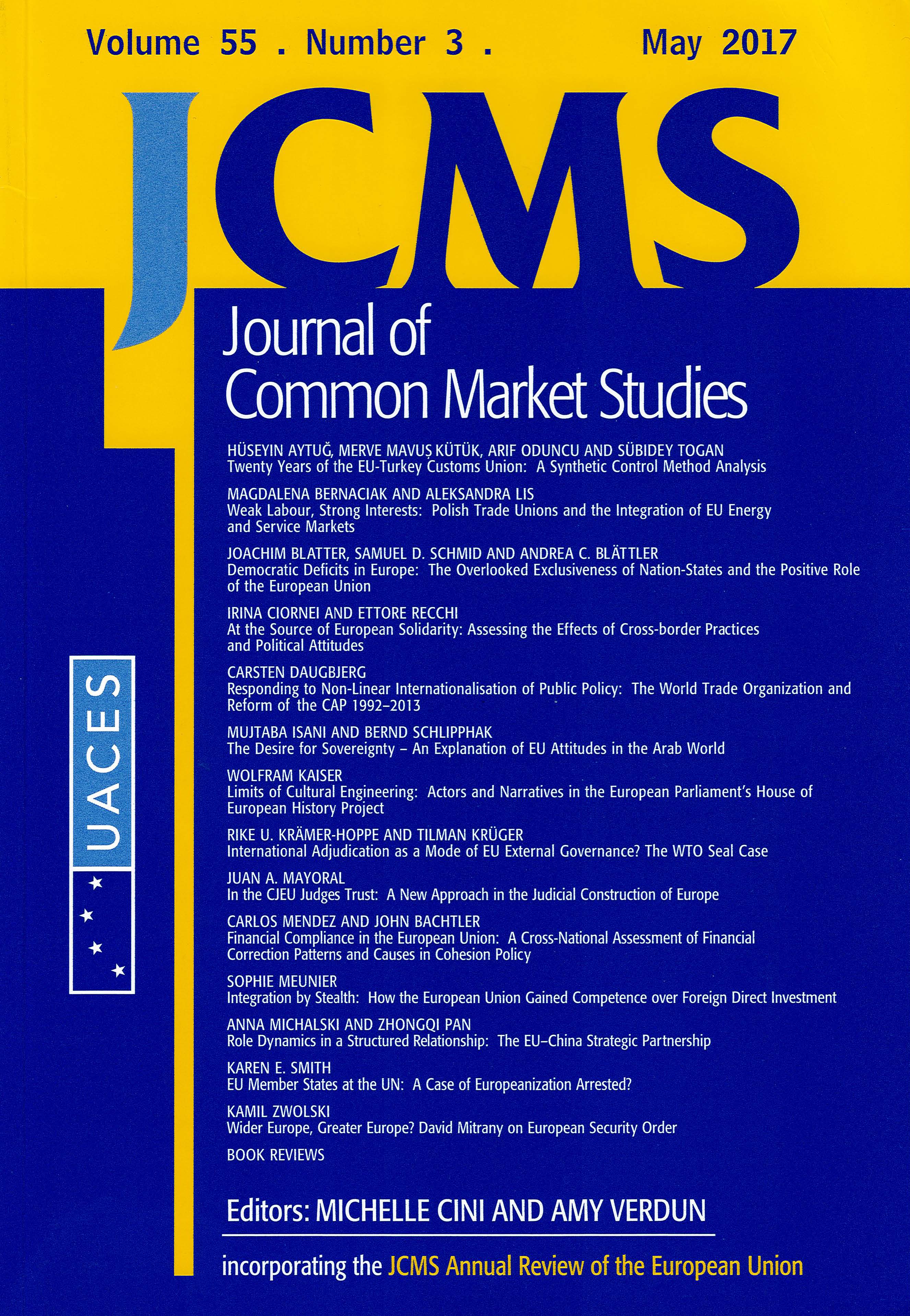
The literature on EU external governance has greatly advanced our understanding of rule transfers beyond Europe's borders. Contributions highlight different modes of such EU external governance. This contribution proposes to add international adjudication as another form of EU external governance. Acknowledging the important role of judicial decision-making in shaping the international order, this article uses the example of WTO adjudication to add to existing conceptualizations of EU external governance. In our view, WTO dispute settlement offers possibilities for the EU to transfer EU norms to the international level and beyond its own borders. As we illustrate through an exploratory case study of the recent WTO seal dispute, the EU's internal setup matters greatly for its success. (JCMS Annual Review of the European Union)
Contribution
Economies of Legal Economics as Basic Research in Public Law (Konjunkturen der Rechtsökonomie als öffentlich-rechtliche Grundlagenforschung)
in: Economies in Basic Research in Public Law (Konjunkturen in der öffentlich-rechtlichen Grundlagenforschung). Edited by ANDREAS FUNKE, JULIAN KRÜPER and JÖRN LÜDEMANN, 2015, S. 103-123
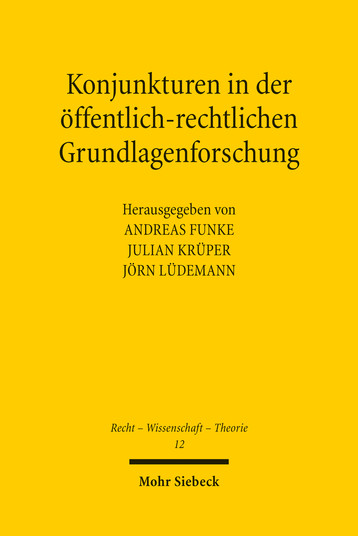
On this book: What is the importance of legal basic research for the field of public law? This is the question that the contributors to this volume approach from various perspectives. A point of special interest is how the importance of basic disciplines has changed and what the reasons for these changes are. It is shown how the need to define, absorb, or ignore basic subjects developed within the discipline. Based on the examples of legal sociology, economy of law, and cultural studies the relevance that certain basic disciplines had and still have, is traced. Considerations from the field of sociology of science complete this volume. It is often ignored that science is a social sub-system of its own. To gain a clearer perspective of the economies in basic research in the area of public law, other social systems, such as the institutions and actors of the scientific community, have to be considered as well. . (Mohr Siebeck)
Contribution
Game theory and collective goods
in: ECONOMICS METHODS FOR LAWYERS. ed. by EMANUEL V. TOWFIGH and NIELS PETERSEN, 2015, S. 61-95
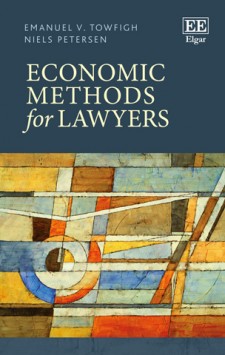
Game theory is a general, analytical theory of rational choice in strategic interactions. While it was focused on the analysis of games in the literal sense in its very beginnings, game theory has since advanced to being an indispensable theoretical tool for economics an many other social sciences. This introduction intends to explain the basic terms an concepts of this complex and efficient theory. (Edward Elgar Publishing)
Entry
Philosophy of Law
in: INTERNATIONAL ENCYCLOPEDIA OF THE SOCIAL & BEHAVIORAL SCIENCES. ed. by JAMES WRIGHT, 2015, Vol. 18, S. 24-30
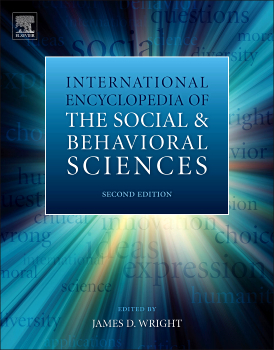
A central task of legal philosophy is to provide a general explanation of the normativity of positive law. Legal positivist theories pursue this aim primarily by philosophical analyses (linguistic, conceptual or ontological) that explain law by descriptive reference to social practices,mainly of institutional actors. For example, legal validity is explained by a rule of recognition, which is a social norm amongst legal officials. Naturalistic approaches in legal positivism seek a closer contact to the social sciences. Natural law theories deny that any explanation of law could succeed without reference to (true) political morality. (Elsevier)
Contribution
Fairness and Reciprocity in Contract Governance
in: CONTRACT GOVERNANCE: DIMENSIONS IN LAW AND INTERDISCIPLINARY, ed. by STEFAN GRUNDMANN, FLORIAN MÖSLEIN and KARL RIESENHUBER, 2015, S. 243-264
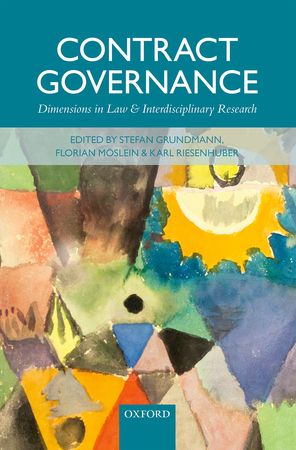
The chapter sketches some important features of the general working mechanisms of fairness and reciprocity and their implications for contract governance. Compared to homo oeconomicus, cooperation is both easier and more difficult with homo reciprocans. Reciprocity repays cooperation with cooperation, but selfish motivations and unconscious biases often lead to an extent of opportunistic behaviour sufficient to trigger a downward spiral driven by negative reciprocity, excess punishment, and anti-social punishment. To check these negative tendencies it is vital to provide the social or moral incentives necessary to sustain positive reciprocity. Since fairness judgments are psychologically indeterminate cooperation based on reciprocity also implies a need to settle on shared fairness standards. This necessity creates a higher-order coordination problem, which institutions must help to solve. In short, contract governance has to tame and institutionalize sanctions and to coordinate fairness standards via the expressive dimension of norms and contracts. (Oxford University Press)
Contribution
Komplementarität und Konflikte Zum Verhältnis von Individuum und Institution aus der Sicht des Religionsverfassungsrechts
[Complementarity and Conflicts On the Relationship between the Individual and Institution from the Perspective of Constitutional Law on Religion ]
in: Religionsverfassungsrechtliche Spannungsfelder, ed. by Hans Michael Heinig and Christian Walter, 2015, p. 95–109
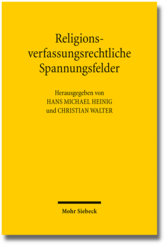
On this book: Tensions are characteristic of the laws on religion. The run between state and society, institution and the individual, between, national, European and international law, between genesis and function, between equality and freedom, between the common good and legitimate self-interest, between secularism, religious belief and denominational affiliation. This volume explores these areas of tension from the perspective of the various disciplines. The collected contributions come from the fields of law, theology, sociology, religious studies and political science. With the help of contrasting concepts and polarities a truly in-depth analysis of the constitutional laws on religion is presented. The contributions provide an interdisciplinary and multi-perspective analysis and enable a deeper understanding of constitutional law concerning religion. (Mohr Siebeck)
Preprint
Konjunkturen der Rechtsökonomie als öffentlich-rechtlicher Grundlagenforschung
[Economies of Law and Economics as Public Basic Research]
Preprints of the Max Planck Institute for Research on Collective Goods Bonn 2014/20
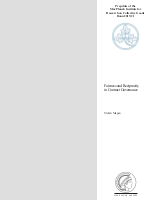
Magen, Konjunkturen der Rechtsökonomie als öffentlich-rechtlicher Grundlagenforschung
Editorships and Articles
Öffentliches Wettbewerbsrecht
[Public Competition Law]
Eds. Gregor Kirchhof, Stefan Korte and Stefan Magen 2014, 610 p.

On the book: In the course of European integration, commercial law has increasingly focused on the internal market and free competition. The control of grants, public tenders, of cartels, abuse and mergers was intensified, and competitive privileges were reduced. The principle of competition also entered into the area of public services, when in energy, telecommunications, postal and railway law, fees, network accesses and universal services had to be regulated and infrastructures secured. The public sector increasingly made use of tax law and other toolsto gently steer competition and of information to secure it. The relevance of competition, which has been especially influenced by European Union law, has reshaped legal areas which have existed for a long time. Through public auctions, public tradable rights, and in the area of protection against systemic risks, new ground was broken. Competition administrative law was developed and with it the aim of analyzing the existing provisions in terms of their relevance to competition.
This book is a joint effort, which aims to address this issue. It strives to summarize those laws, through which the public sector influences competition, under the term Public Competition Law and to systematize it in four areas: legally protected, enabled, steered, and created competition. The central principle of Public Competition Law is neutrality in competition - as the guiding principle and a subjective right. This volume is based on the findings and insights, which the eleven authors have developed during and after four conferences. The basic principles of Public Competition Law could thus be compiled by the eleven authors in one joint contribution (§4) - an attempt at something new, also regarding form.
Preprint
Ein Wettbewerbskonzept für das Öffentliche Wettbewerbsrecht
[A CompetitionConcept for Public Competition Law]
Preprints of the Max Planck Institute for Research on Collective Goods, issue 2014/8
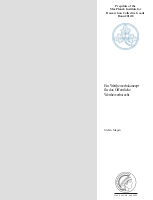
Public commercial law has been significantly reoriented towards competition through the European single market and its economizing tendencies in the past few decades. Based on this development, a joint research project proposes to reconceive large parts of public commercial law as "Public Competition Law" (see G. Kirchhof/S. Korte/S. Magen (Eds.), Public Competition Law, to be published). This contribution presents a legal dogmatic concept of competiton, which can be used as an instrument for legal analysis.
Magen, Ein Wettbewerbskonzept für das Öffentliche Wettbewerbsrecht
Article
Eckpunkte für einen stärker ökonomisch informierten Ansatz im Recht der nichtsteuerlichen Abgaben
[Key Features of a More Strongly Economically Informed Approach in the Law of Non-Tax Charges]
in: Die Verwaltung, 46. Band, 2013, Issue 3, p. 383–411
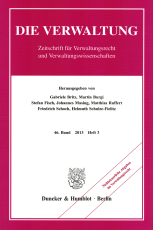
(Duncker & Humblot); also
(MPI for Research on Collective Goods)
Preprint
Fairness and Reciprocity in Contract Governance
Preprints of the Max Planck Institute for Research on Collective Goods, issue 2013/21

Contribution
Loyalitätspflichtverletzungen im kirchlichen Arbeitsrecht zwischen Menschenrechtskonvention und Grundgesetz
[The Breach of the Duty of Loyalty in Church Labor Law between the Human Rights Convention and the German Constitution]
in: Straßburg und das kirchliche Arbeitsrecht, ed. by Burkhard Kämper and Adelheid Puttler, 2013, p. 41–56
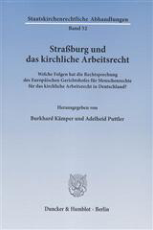
On this book: This book contains the lectures from a scientific and also practice-oriented symposium, which the Law Faculty of the Ruhr University Bochum held on the consequences of the jurisprudence of the ECtHR for Church labor law in Germany. Two decisions in particular prompted the symposium, which had received an extraordinary response in Germany. In both cases, the employment of Church employees had been terminated due to extra-marital affairs and the subsequent labor court procedures contesting the terminations had remained unsuccessful. In the so-called "Mormon case" (Obst v. Germany) the court found no violation of the right to respect for private and family life (Art. 8 of the ECHR), while in the case of a Catholic church musician, the court ruled that Art. 8 had been violated.
The resulting question for practice is not only the reasons for the different treatment of both cases. The various reactions also showed that consequences of a ruling by the ECtHR need clarification concerning national law. There also remains uncertainty among the Church employers as well as the labor court about how to deal with similar cases. (Duncker & Humblot)
Article
Zur Legitimation privaten Rechts
[On the Legitimation of Private Law]
in: Privates Recht, ed. by Christian Bumke and Anne Röthel, 2012, p. 229–246

On the book: In many areas of life, private individuals contribute to the shaping of social order by self-imposed rules. These private rules mostly do not exist separately from national law, but are integrated in the legal system in many ways. Even if the phenomenon is familiar, the attitudes of jurisprudence and it deals with this phenomenon is still unclear. In considering private law, jurists of all disciplines find themselves in an uncomfortable situation: Is it a reasonable exercise of autonomy or the assertion of inappropriate group power? Are we witnessing trendsetting non-governmental constitutionalization processes or the erosion of the democratic constitutional state? Does private law require state legitimization or is it justified as a consequence of the constitutionally protected exercise of freedom? (Mohr Siebeck)
Article
Neutralität und negative Religionsfreiheit im staatlich verantworteten öffentlichen Raum
[Neutrality and Negative Religious Freedom in the Public Sphere under State Responsibility]
in: Islam – Säkularismus – Religionsrecht, ed. by Lothar Häberle and Johannes Hattler, 2012, p. 95–109
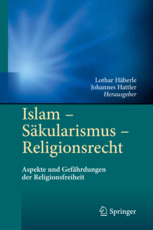
On the book: Since the founding of the Federal German Republic, the religious composition of its society has become more heterogeneous and conflictual: The group of non-religious people, of whom some actively advocate ideological secularism, has increased, as has the group of Muslims of various confessions.
Two of the contributions focus on Islam and its complex relationship with the constitutional state, another one on secularist (or secular) positions. Several chapters address the question how national laws on religion should react to the challenges of Islam and secularism and if adjustments need to be made. Finally, two contrary rulings by the European Court of Human Rights (ECtHR) on an Italian case concerning crosses in schools are analyzed. (Springer)
Editorshipand and Contribution
Was weiß Dogmatik?
[What does dogmatics know?]
Ed. by Gregor Kirchhof, Stefan Magen and Karsten Schneider 2012, 175 p.

The relationship between German jurisprudence and dogmatics is remarkably ambivalent. Das Verhältnis der deutschen Rechtswissenschaft zur Dogmatik ist auf bemerkenswerte Weise ambivalent. Legal dogmaticsis seen as the core of jurisprudence, but also as a special German path.Its systematic thinkingis seen as the key to understanding law and to its consistent application, but also as the instrument of self-empowerment for science and practice with respect to the democratic legislator. Some criticize dogmatics for obstructing communication and isolating itself from other disciplines, while others see it as an indispensablestarting point for any exchange and dialogue. Dogmatics appears to be a particularity of German legal thought, but is also characteristic of functioning legal systems. What the task and the function of dogmatics is, what kind of knowledge it provides and what characterizes good dogmatics as opposed to hypertrophic developments were the subjects of a colloquium, which was organized in 2009 by the KölnBonnerForum and which the contributions in this volume are based on. (Mohr Siebeck)
Content:
Colloquium
- Winfried Hassemer: Dogmatik zwischen Wissenschaft und richterlicher Pragmatik: Einführende Bemerkungen
- Christian Waldhoff: Kritik und Lob der Dogmatik: Rechtsdogmatik im Spannungsfeld von Gesetzesbindung und Funktionsorientierung
- Oliver Lepsius: Kritik der Dogmatik
- Udo Di Fabio: Systemtheorie und Rechtsdogmatik
- Martin Eifert: Zum Verhältnis von Dogmatik und pluralisierter Rechtswissenschaft
- Bernd Grzeszick: Steuert die Dogmatik? Inwiefern steuert die Dogmatik des Öffentlichen Rechts? Gibt es eine rechtliche Steuerungswissenschaft jenseits der Rechtsdogmatik?
- Andreas Voßkuhle: Was leistet Rechtsdogmatik? Zusammenführung und Ausblick in 12 Thesen
Additions
- Matthias Jestaedt: Wissenschaftliches Recht. Rechtsdogmatik als gemeinsames Kommunikationsformat von Rechtswissenschaft und Rechtspraxis
- Frank Schorkopf: Dogmatik und Kohärenz
- Gregor Kirchhof/Stefan Magen: Dogmatik: Rechtliche Notwendigkeit und Grundlage fächerübergreifenden Dialogs – eine systematisierende Übersicht
Congratulations
Michael Stolleis on his 70thBirthday
im: Archiv des öffentlichen Rechts, 137th Volume, 2012, Issue 1, p. 135–138
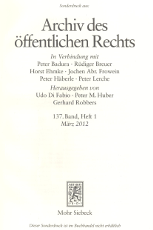
Contribution
Spieltheorie
[Game Theory]
in: Ökonomische Methoden im Recht, ed. by Emanuel Towfigh et al., 2010, p. 71–116
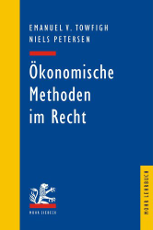
On this book: Interdisciplinary work is becoming increasingly important in jurisprudence. In dealing with law from a dogmatic or sociological perspective, one often has to resort to empirical findings, without finding proper analytical instruments in juristic methodology. With this book Emanuel V. Towfigh and Niels Petersen want to close a gap. Unlike many other textbooks, the focus is not on the application of economic findings in various legal fields. The authors start at an earlier point, by giving jurists an introduction to economic methods. The textbook doesn´t enable them to conduct their own empirical studies, but to understand such studies and to apply them to legal problems of interest to them. Following a brief introduction on the integration of sociological methods into law, they provide an overview of such varying fields as basic concepts of economics, microeconomics, contract and game theory, behavioral economics, empirical research design, and some basic concepts of statistics. The book is aimed at students looking for an introduction to the sociological approach to law, as well as researchers, who want to receive and understand economic studies for their work and at practitioners, who have to refer to sociological expert opinions in their work and need to understand their line of reasoning. (Mohr Siebeck)
Article
Grundfälle zu Art. 4 III GG
[Basic Cases on Art. 4 III of the German Constitution]
in: JuS 2009, p. 995–999
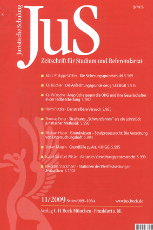
Article
Rechtliche und ökonomische Rationalität im Emissionshandelsrecht
[Legal and Economic Rationality in Emissions Trading]
in: Recht und Markt – Wechselbeziehungen zweier Ordnungen, 49. Assistententagung Öffentliches Recht, ed. by Emanuel Towfigh et al., 2009, p. 9–28
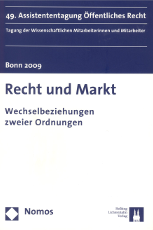
On this book: Law and the market interact in many different ways. Traditionally, the law is seen as a regulatory instrument for the market. In a world, in which economic and social relationships are increasingly no longer limited by state or continental borders, the influence of the law on the market is no longer unilateral. Law does not only regulate markets - it has itself become the object of markets. This volume, which consists of the contributions from the 49th Assistant Conference on Public Law, analyzes the most recent developments in the interface between market and law and has selected a range of issues. Besides the classic areas of economic regulation and competition law, more recent phenomena, such as the trade of information and non-monetary markets, as the race to dominate opinion in the media, are analyzed. Other contributions focus of the establishment and facilitation of markets through law, as in the case of emissions trading.The volume is completed by philosophical and sociological analyses of the compatibility of the various normative aims of market and law. (Nomos); also (MPI for Research on Collective Goods)
Review
Klaus Mathis, Effizienz statt Gerechtigkeit? – Auf der Suche nach den philosophischen Grundlagen der Ökonomischen Analyse des Rechts, 2006
[Klaus Mathis, Efficiency instead of Justice? - Searching for the Philosophical Basis of the Economic Analysis of Law, 2006 ]
in: Zeitschrift für Rechtsphilosophie 2009 p. 97–110 (with Jörn Lüdemann)
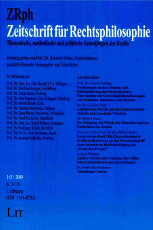
Contribution
Individual Decision Making and the Evolutionary Roots of Institutions
in: Better Than Conscious? – Decision Making, the Human Mind, and Implications For Institutions, ed. by Christoph Engel and Wolf Singer, 2008, p. 325–342 (with Richard McElreath et al.)
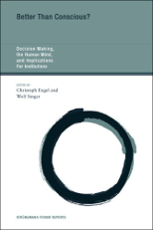
Overview: Conscious control enables human decision makers to override routines, to exercise willpower, to find innovative solutions, to learn by instruction, to decide collectively, and to justify their choices. These and many more advantages, however, come at a price: the ability to process information consciously is severely limited and conscious decision makers are liable to hundreds of biases. Measured against the norms of rational choice theory, conscious decision makers perform poorly. But if people forgo conscious control, in appropriate tasks, they perform surprisingly better: they handle vast amounts of information; they update prior information; they find appropriate solutions to ill-defined problems.
This inaugural Strüngmann Forum Report explores the human ability to make decisions, consciously as well as without conscious control. It explores decision-making strategies, including deliberate and intuitive; explicit and implicit; processing information serially and in parallel, with a general-purpose apparatus, or with task-specific neural subsystems. The analysis is at four levels—neural, psychological, evolutionary, and institutional—and the discussion is extended to the definition of social problems and the design of better institutional interventions. The results presented differ greatly from what could be expected under standard rational choice theory and deviate even more from the alternate behavioral view of institutions. New challenges emerge (for example, the issue of free will) and some purported social problems almost disappear if one adopts a more adequate model of human decision making. (MIT-Press)
Contribution
Entscheidungen unter begrenzter Rationalität als Proprium des öffentlichen Rechts
[Decision-Making under Bounded Rationality as the Proprium of Public Law]
in: Das Proprium der Rechtswissenschaft, ed. by Christoph Engel u. Wolfgang Schön, 2007, p. 303–310

On the book: What turns law into science? This is the question the authors aim to address in these essays.Jurisprudence is a confident discipline. The obvious practical importance of the field protects it from self-doubt. The practical demand for legions of highly qualified jurists also plays its part. But in the competition between the disciplines at the university level, these are rather weak arguments. What is even more disconcerting is that many dogmatic arguments are based on sociological concepts. This leads to friction in the application of law: a court has no use for an exact mathematical model or for regressions, which are so well specified, that the error term is normally distributed. If jurisprudence is opened up to hard social sciences, the field will need mediators. The situation regarding legal policy is even more difficult: can jurists advise the legislator with scientific authority of their own, or are the regulatory goals of a good legislator better defined from the perspective of economists, psychologists, or sociologists? The unity of scholarship and practice, heretofore unquestioned, becomes a requirement-laden endeavor. This might lead some legal scholars to retreat completely to the position of a mere observer, which would reduce law to an object of research. Such a scholar would no longer want to contribute to the development of dogmatics. This raises the question of the independence of jurisprudence in the scientific sphere - the question of the "Proprium of Law". (Mohr Siebeck)
Contribution
Zur Interaktion von Recht und sozialen Normen bei der dezentralen Bereitstellung von Gemeinschaftsgütern
[On the Interaction of Law and Social Norms in the Decentralized Provision of Common Goods]
in: Aktuelle Fragen zu politischer und rechtlicher Steuerung im Kontext der Globalisierung, ed. by Michael Stolleis and Wolfgang Streeck, 2007, p. 185–208

On this book: In the context of "globalization" and the closely linked transformation of the classic nation state, "decentralization" is increasingly being discussed as a possible answer to the challenges of this epochal shift. The forces pushing for a greater global integration are opposed by those, who see these expansive processes as the main problem that cannot be stopped, but at least moderated.
This multi-disciplinary volume, which is the result of an initiative of Max-Planck-Institutes working in the humanities, aims to contribute to an empirically reliable identification of the "fruits" of the different strategies. Those are the fields of sociology, political science, and economy. Especially the historical disciplines can clarify how the various traditions and mentalities developed and what the causes of the conflicts are.The legal disciplines, finally, are to examine which normative regimes can be recommended and how decentralized models can be established, which actually help ensure the goals of efficient democracy, human and civil rights, and autonomy in the age of globalization. (Nomos); also (MPI for Research on Collective Goods)
Contribution
Fairness, Eigennutz und die Rolle des Rechts. Eine Analyse auf Grundlage der Verhaltensökonomik
[Fairness, Self-Interest and the Role of Law. An Analysis Based on Behavioral Economics]
in: Recht und Verhalten, ed. by Christoph Engel, Markus Englerth, Jörn Lüdemann and Indra Spiecker gen. Döhmann, 2007, p. 261–360
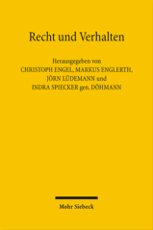
On the book: Law and economics have a lot of commonalities. Even though the homo economicus has proven a very productive intellectual instrument, this economic behavioral model is no theoretical "master key", which could explain all human behavior. In fact there are many situations, in which humans behave in a way which cannot be explained from a strictly economic perspective. Especially in cooperating with psychology and with the emergence of experimental economy, the focus of many economists has shifted to constellations, in which the model predictions and reality diverge. This branch of behavioral economics, which is interested in realistic behavior, has developed into a line of research in the United States under the name 'Behavioral Law and Economics'. It uncovers the limits of economic analysis using behavioral theory and empirical analysis and examines the relevance of these findings for law. In this volume, the authors examine jurisprudential issues of this theoretical concept as well as the relevance of behavioral research for various areas of law and the possibility of direct cooperation between jurisprudence and psychology. (Mohr Siebeck); also (MPI for Research on Collective Goods)
Article
Naturalizations Obtained by Fraud – Can They be Revoked?
in: German Law Journal 7 (2006), p. 681–704
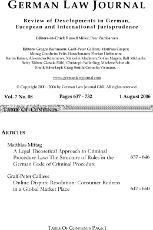
Article
Die Garantie kommunaler Selbstverwaltung
[The Guarantee of Local Self-Government]
in: JuS 2006, p. 404–410
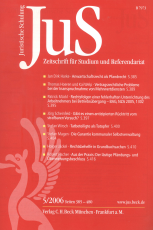
Article
Are Heuristics a Problem or a Solutution?
in: Heuristics and the Law, ed. by Christoph Engel u. Gerd Gigerenzer, 2006, p. 103–140 (with Douglas Kysar et al.)
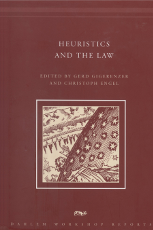
Overvie: In recent decades, the economists' concept of rational choice has dominated legal reasoning. And yet, in practical terms, neither the lawbreakers the law addresses nor officers of the law behave as the hyperrational beings postulated by rational choice. Critics of rational choice and believers in "fast and frugal heuristics" propose another approach: using certain formulations or general principles (heuristics) to help navigate in an environment that is not a well-ordered setting with an occasional disturbance, as described in the language of rational choice, but instead is fundamentally uncertain or characterized by an unmanageable degree of complexity. This is the intuition behind behavioral law and economics. In Heuristics and the Law, experts in law, psychology, and economics explore the conceptual and practical power of the heuristics approach in law. They discuss legal theory; modeling and predicting the problems the law purports to solve; the process of making law, in the legislature or in the courtroom; the application of existing law in the courts, particularly regarding the law of evidence; and implementation of the law and the impact of law on behavior. (MIT Press)
Contribution
Neuerwerb des Körperschaftsstatus
[Aquiring the Status of a Corporate Body]
in: Fälle und Lösungen zum Staatskirchenrecht, ed. by Michael Heinig, 2005, p. 129–125
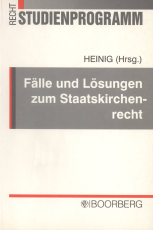
On the book: "Cases and Solutions for State-Church Law" coversthe entire area of state-church law. It ranges from the area of the protection of basic rights and the institutional protection of church interests, to the increasing influence of European law. On the other hand, the cases and solutions reflect the various positions within the discipline.
It is essential to a solid legal education to learn early on that in most cases there is not one "correct" solution, but that several ways can lead to a successful solution of a case and that the quality of the arguments is of great importance. For this reason renowned authors with sometimes differing perspectives could be won to contribute to this volume. (Boorberg)
Dissertation
Zum Verhältnis von Körperschaftsstatus und Religionsfreiheit. Zur Bedeutung des Art. 137 Abs. 5 WRV im Kontext des Grundgesetzes
[On the Relationship Between the Status of a Corporate Body and the Freedom of Religion in Art. 137 (5) WRV in the Context of the German Constitution]
in: Jus Ecclesiastum – Beiträge zum evangelischen Kirchenrecht und zum Staatskirchenrecht, Bd. LXXV, ed. by Axel Frhr. von Campenhausen et al., 2004, 328 p.
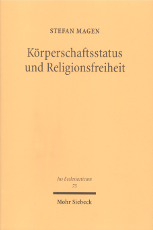
On the book: Many can only understand the status of denominations under public law as a historical remnant. For a long time, its constitutional interpretation was based on the term "public", which was understood to point to the importance on the churches for state and society. But recently the idea of a "basic right subsidization" has gained traction. Both approaches, however, remain difficult to grasp, because they neglect the actual legal effects of this status. Stefan Magen, on the other hand, examines the individual powers granted under public law and their dogmatic function in the context of basic rights. Based on theological findings he is able to show that religious communities could only constitute themselves under the general legal forms of civil law by losing their religious identity, because these legal forms are tailored modern organization. He shows that in the area of religion, special requirements have to be met to insure that the legal form conforms to basic rights. He also shows how these requirements are met by the various corporate body powers. In this task of specifying and implementing the legal and organizational content of freedom of religion, the continuous importance of the status of corporate body becomes apparent. (Mohr Siebeck)
Commentation
Art. 35 GG [Rechts- und Amtshilfe]
[Art. 35 GG (German Constitution) (Legal and Administrative Assistance)]
in: Grundgesetz – Mitarbeiterkommentar und Handbuch, Bd. I, ed. by Dieter C. Umbach and Thomas Clemens, 2002, p. 1850–1869
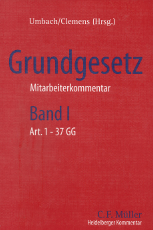
On the book: As in the commentary on the Federal Constitutional Court Act, also published byUmbach/Clemens, the special feature of this commentary is that the authors all worked or still work for the Federal Constitutional Court. In this commentary, the focus lies on the systematic review of the Constitutional Court´s jurisdiction, meaning that the entire literature is not examined in scientific breadth.
The commentations rather focus on presenting the court´s most important statements for practice on each article, to evaluate them critically, if necessary, and to reference legal literature on issues which have not been reviewed by jurisdiction yet.[...] (Beck-Shop)
Commentation
Art. 140 GG [Staatskirchenrecht]
[Art. 140 GG [State Church Law]]
in: Grundgesetz – Mitarbeiterkommentar und Handbuch, Bd. II, ed. by Dieter C. Umbach and Thomas Clemens, 2002, p. 1613–1680
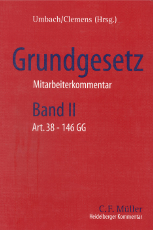
On this book: As in the commentary on the Federal Constitutional Court Act, also publiished by Umbach/Clemens, the special feature of this commentary is that the authors all worked or still work for the Federal Constitutional Court. In this commentary, the focus lies on the systematic review of the Constitutional Court´s jurisdiction, meaning that the entire literature is not examined in scientific breadth.
The commentations rather focus on presenting the court´s most important statements for practice on each article, to evaluate them critically, if necessary, and to reference legal literature on issues which have not been reviewed by jurisdiction yet.[...] [...] (Beck-Shop)
Commentation
§ 91 BVerfGG [Kommunalverfassungsbeschwerde]
§ 92 BVerfGG [Begründungslasten]
[§ 91 BVerfGG [Municipal Constitutional Complaint (Kommunalverfassungsbeschwerde)]
§ 92 BVerfGG [Burden of Justification (Begründungslasten)]]
in: Bundesverfassungsgerichtsgesetz – Mitarbeiterkommentar und Handbuch, 2nd Ed., ed. by Dieter C. Umbach, Thomas Clemens and Franz-Wilhelm Dollinger, 2005, p. 1183–1203
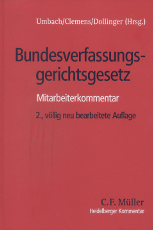
On this book: [...] The commentary provides a complete overview of the Federal Constitutional Court Act (BVerfGG) and is distinguished by a strong practical orientation as well as scientific reliability. The essays and commentaries have been either rewritten or expanded and are up to date..[...] (Beck-Shop)
Contribution
Staatskirchenrecht als symbolisches Recht
[State Church Law as Symbolic Law]
in: Koexistenz und Konflikt von Religionen im vereinten Europa, ed. by Hartmut Lehmann, 2004, p. 30–53
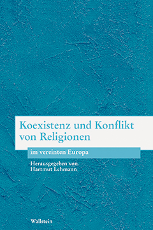
On this book:Traditional and recent religious tensions in a united, secular Europe and (legal) possibilities of coping with them.
The continuing secularization of religious affairs in the European countries since the second half of the 20th century has strengthened mutual resentments and prejudices among the different faiths, which reach back far into the past. In addition, new and in some cases very explosive conflicts have sprung up. The essays in this volume present the existing areas of tension, show the prejudices of various faiths toward the others and discuss aspects of the current situation. The situation of Muslims in Europe is of special interest. Some of the contributions also discuss the legal provisions, which prevent religiously motivated conflict and which can lead to peaceful coexistence of the various religions in a unified Europe. In this complex and problematic area, jurisprudence can play an important role. (Wallstein); also (MPI for Research on Collective Goods)
Article
Der Rechtsschutz in Kirchensachen nach dem materiell-rechtlichen Ansatz
[Legal Protection in Church MattersFollowingthe Substantive Legal Approach]
in: NVwZ 2002, p. 897–903
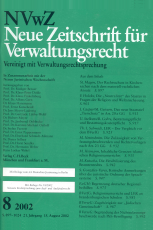
Article
Zum Verhältnis on Körperschaftsstatus und Religionsfreiheit
[On the Relationship between the Status of Corporate Body and Freedom of Religion]
in: NVwZ 2001, p. 888–889
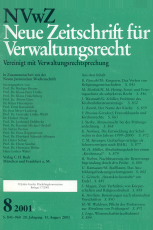
Article
Mieterhöhung an der Haustüre
[Rental Increase at the Front Door]
in: JA 1999, p. 464–473
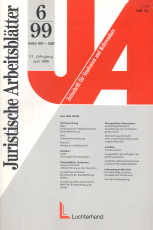
Article
Die Rolle des Rechts im Prozeß der Globalisierung
[The Role of Law in the Process of Globalization]
in: Zeitschrift für Rechtssoziologie, 1996, p. 1–57 (zusammen mit Klaus F. Röhl)
